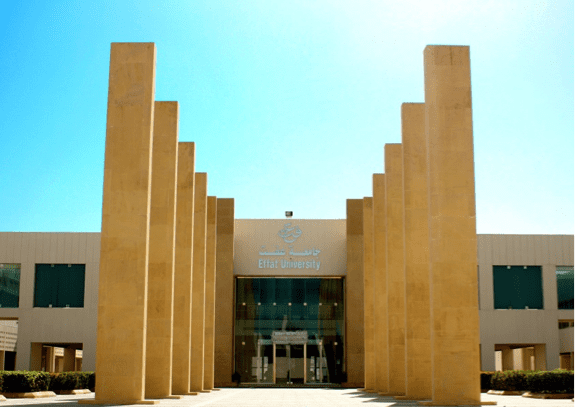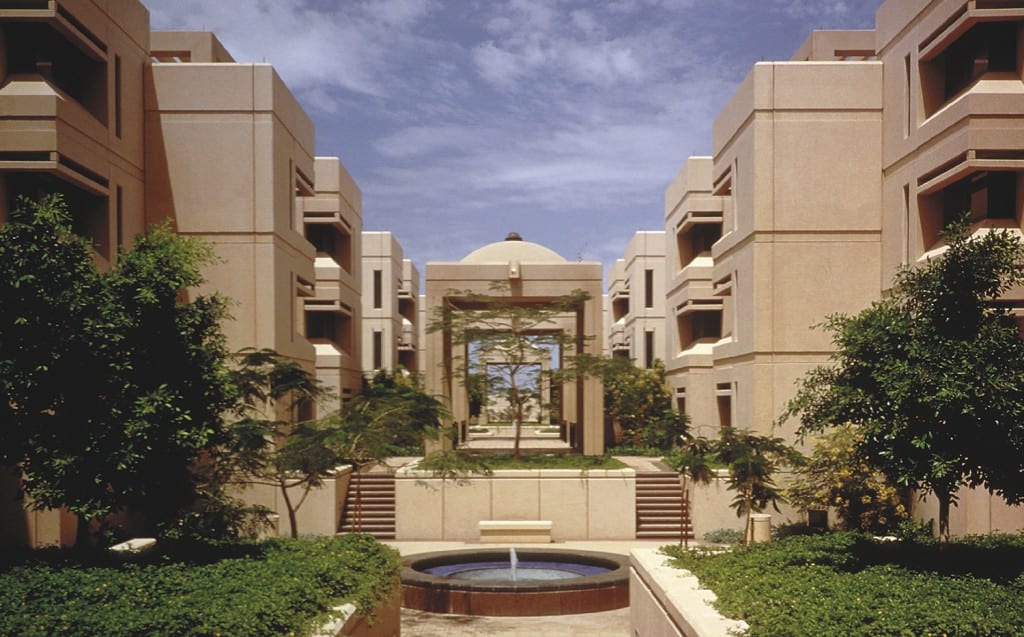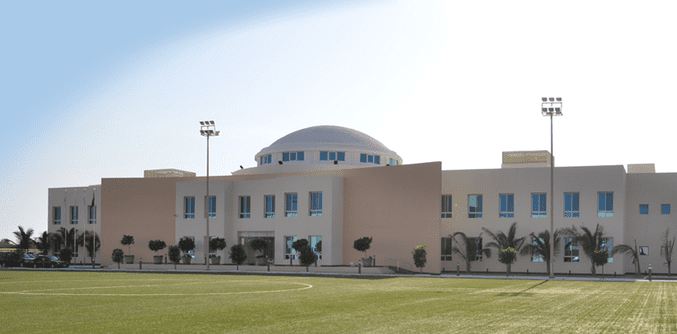
Saudi Arabia, officially known as the Kingdom of Saudi Arabia, is the largest Arab state in Western Asia by land area and the second-largest in the Arab world. Saudi Arabia has the world’s largest oil reserves which are concentrated largely in the Eastern Province. Oil accounts for more than 95% of exports and 70% of government revenue, although the share of the non-oil economy has been growing recently. This has facilitated the transformation of an underdeveloped desert kingdom into one of the world’s wealthiest nations.
Why Study in Saudi Arabia?
International students will find a welcoming environment in Saudi Arabia, and the government even provides special scholarship programs specifically for non-Saudi students. Saudi Arabia is one of the best places in the world for master’s programs in Islamic studies. Studying in the country also provides a full Arabic cultural and language immersion for students not from the Middle East or for non-native Arab speakers. In addition to Islamic studies, modern Saudi institutions provide a wide variety of master’s degree programs in art, science, engineering, agriculture, medicine, education, computer science and information science. Many master’s degree programs are taught in English, especially those in technical areas such as engineering.
Tuition and Program Duration
Citizens of Saudi Arabia are provided with free education and books. Many international students study for free as well. For example, all students admitted to the King Abdullah University of Science and Technology are provided with a fellowship that covers tuition, housing, medical and dental coverage, and about $US 30,000 annual living expenses.
Academic Year
The first semester classes generally begin in early September and run through early December, followed by final exams. The second semester begins in early February and runs through early May, followed by final exams.
Universities
The higher education system includes 21 government universities, 19 teacher’s colleges for men, 80 teacher’s colleges for women, 37 colleges and institutes for health, 12 technical colleges and 24 private universities and colleges. Universities and colleges offer graduate programs that include both master’s and doctoral degrees. Private universities and institutions are non-profit organizations that complement government universities. Most government universities are general universities, but some specialize in certain areas such as petroleum and health.
-
Jeddah
-
Effat University
 Effat University is a leading private non-profit institution of higher education for women in Saudi Arabia, operating under the umbrella of King Faisal’s Charitable Foundation. Effat University is strengthened by the legacy of its founder, Queen Effat Al- Thunayyan Al-Saud, wife of the late King Faisal Bin Abdal- Aziz (May God rest their souls). In 1419 H, (corresponding to 1999 G), it started offering its academic programs under the name of Effat College. In order to be a center of academic excellence, Effat College launched different academic programs taught in English to expand the horizons of women in Saudi Arabia and raise their educational level. The first two departments established by the college were the Computer Science and Kindergarten Departments. These programs aimed to prepare women for the job market and increase their chances to find work opportunities.
Effat University is a leading private non-profit institution of higher education for women in Saudi Arabia, operating under the umbrella of King Faisal’s Charitable Foundation. Effat University is strengthened by the legacy of its founder, Queen Effat Al- Thunayyan Al-Saud, wife of the late King Faisal Bin Abdal- Aziz (May God rest their souls). In 1419 H, (corresponding to 1999 G), it started offering its academic programs under the name of Effat College. In order to be a center of academic excellence, Effat College launched different academic programs taught in English to expand the horizons of women in Saudi Arabia and raise their educational level. The first two departments established by the college were the Computer Science and Kindergarten Departments. These programs aimed to prepare women for the job market and increase their chances to find work opportunities.
During the following academic year 1421/ 1422 H (corresponding to 1999/ 2000 G) the founders of Effat established three new programs; Information Systems, Psychology, and English Language and Translation.
In 1423 H (corresponding to 2002 G), Effat College signed a collateral agreement with King Faisal Private University to become one of its three Colleges; Effat College in Jeddah, Prince Sultan College For Tourism and Business in Abha and Prince Sultan College For Tourism and Management in Jeddah.
After that, three new majors were introduced during the academic year 1426/ 1427 H (corresponding to 2005/2006 G); Business Administration, and for the first time in Saudi Arabia Effat College inaugurated the first department of Engineering for women consisting of two majors: Architecture and Electrical and Computer Engineering, neither of which had ever been made available to women before in the Kingdom -
King Abdulaziz University
 King Abdulaziz University carries the name of the establisher of Saudi Arabia- God bless him. This university was established in 1387 H / 1967 G as a national university aiming at spreading higher education in the western area of Saudi Arabia. This dream has come true through the continuous efforts of the loyal citizens of this country. The members of the initiating committee had the chance to meet King Faisal Bin Abdulaziz –God bless him- and His Majesty showed all support for this idea. The establishing committee was formed headed by King Faisal- God bless him and his highness the Minister if Education at that time Sheikh Hasan Bin Abdullah Al Al- Sheikh.
King Abdulaziz University carries the name of the establisher of Saudi Arabia- God bless him. This university was established in 1387 H / 1967 G as a national university aiming at spreading higher education in the western area of Saudi Arabia. This dream has come true through the continuous efforts of the loyal citizens of this country. The members of the initiating committee had the chance to meet King Faisal Bin Abdulaziz –God bless him- and His Majesty showed all support for this idea. The establishing committee was formed headed by King Faisal- God bless him and his highness the Minister if Education at that time Sheikh Hasan Bin Abdullah Al Al- Sheikh.The university started its first year in (1388h- 1968g) by inaugurating the preparation study program with a few number of students( 68 male students and 30 female students,) and directly the year after, the university inaugurated its first college ( the College of Economics and Management,) then in the following year the college of Arts and Human Sciences was established.
After the honored resolution of the Council of Ministers was issued in (1394h – 1974g) by including the university in the government, the national university was changed into a government university and another decision was issued at the same time by including the College of Shareah and the College of Higher Education that were already established in 1369h-1949g in Mekka in King Abdulaziz University. These two colleges followed Omm AL-Qora University after it was established.
The adoption of the government to this young university and the continuous support was of great effect on changing King Abdulaziz University to a modern university with a number of students that now amounts to 82152 male and female students. The university also occupies a distinguished place among higher education institutions in the Kingdom.
King Abdulaziz University includes two separate campuses according to Islamic regulations one for males and another for females. Each of these campuses is provided with all cultural, recreational and athletic facilities, in addition to a big library equipped the most up to date technology to serve students and the teaching staff. Within four decades, the university becomes one of the outstanding higher education institutions on the local and international level. This university offers educational programs for preparing the graduates to do jobs that cope with the changing needs of the community.
After being established , the university included branches for other universities like Teeba University in Al-Madina Al-Monawarah which became an independent university in ( 1424h – 2003g) , the branch of Tabouk University and Jasan University which were also became independent universities, The North Borders University and Araar and Rafha colleges.
-
University of Business and Technologgy
 As known, UBT has grown gradually and progressively from a Junior College to a full fledge Four Year College (CBA) offering six programs, and in 2008 it added the College of Engineering and Information Technology offering five programs, and then in 2011 the College of Advertising joined in after being approved by the Ministry of Higher Education as the third college. On May 22nd, 2012 UBT was officially announced as the UNIVERSITY OF BUSINESS AND TECHNOLOGY by the Higher Council of the Saudi Higher Education. UBT has become a university in a short period of only 12 years. This tremendous growth would not have been possible without the following factors:
As known, UBT has grown gradually and progressively from a Junior College to a full fledge Four Year College (CBA) offering six programs, and in 2008 it added the College of Engineering and Information Technology offering five programs, and then in 2011 the College of Advertising joined in after being approved by the Ministry of Higher Education as the third college. On May 22nd, 2012 UBT was officially announced as the UNIVERSITY OF BUSINESS AND TECHNOLOGY by the Higher Council of the Saudi Higher Education. UBT has become a university in a short period of only 12 years. This tremendous growth would not have been possible without the following factors:- Effective and courageous leadership.
- High concern for Quality Education
- The provision of specialized business education that was non-existent in Government Universities but highly needed in the labor market. CBA along with its Sister Colleges (forming UBT) are governed by its charter (attached) which was approved by the Supreme Council of Higher Education. In light of Article 7 of the charter, the UBT’s governing body consists of:
- The Board of Trustees (BOT).
- The University Council (Senate).
- The Scientific Council.
- The College Council/s.
- The Departmental Council/s.
The key governing positions include the Rector, Vice Rector, Deans, Vice Deans and Head of Academic Departments (HODs). These together represent the Academic Structure of the University (UBT). BOT membership has been proposed to the Ministry of Higher Education (MOHE) and awaiting its approval. This board will consist of 19 members; 3 Owners, 4 Deans, 5 Members from other Universities, 5 external members, the Rector and the Ministry of Higher Education (MOHE) Representative. BOT’s responsibilities and tasks are specified in Article 11 of the Charter. The BOT meets at least twice a year to discuss and decide broad issues related to strategies, policies, objectives and long range planning. The University Council (UC), on the other hand, is the Operation Supervisor of the University. It meets monthly to discuss and decide most short and intermediate term academic issues. It consists of the Rector, Vice Rector for Academic Affairs, 4 College Deans, 3 College Representatives and a MOHE Representative. UC’s responsibilities and tasks are delineated in Article 15 of the Charter. The College Council of CBA is a Joint College Council (JCC) that combines the College Council of CBA Boys and College Council of CBA Girls. The JCC is headed by the two Deans alternately almost every month and combines the HODs and Departmental Supervisors of the two Campuses.
The College of Engineering (CEIT) has its own College Council whose decisions are subject to the Rector’s approval. The Jeddah College of Advertising (JCA) has no College Council yet, since it intends to start enrolling students in fall 2013. When formed, the JCA’s College Council will follow the same rules and regulations of CBA and CEIT.
All Boards, Colleges, University or Trustees operate in light of the newly developed Vision, Mission and Objectives of the University (UBT) as attached.
-
-
Riyadh
-
Alfaisal University
 Alfaisal University offers wide range of Graduate and Undergraduate programs in its four colleges (Business, Engineering, Medicine and Science).The programs have been designed in collaboration with distinguished international academic partners in order to satisfy the local and international market demands and to enable students to be prepared for employment.
Alfaisal University offers wide range of Graduate and Undergraduate programs in its four colleges (Business, Engineering, Medicine and Science).The programs have been designed in collaboration with distinguished international academic partners in order to satisfy the local and international market demands and to enable students to be prepared for employment.Located in the heart of Riyadh, the center for commerce, industry and research, Alfaisal offers its students opportunities to develop their full potential with outstanding facilities, inspirational academics and research-led teaching that will enable our students to leave us as highly skilled, well-developed individuals able to make the transition into the workplace easily.
-
